Life
Sign up for our newsletter
We summarize the week's scientific breakthroughs every Thursday.
-
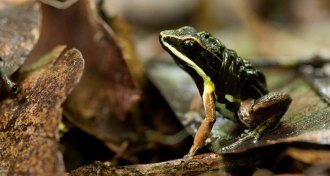 Animals
AnimalsRainforest frogs flourish with artificial homes
A rainforest frog population grew by about 50 percent when scientists built pools for tadpoles that mimic puddles made by other animals.
-
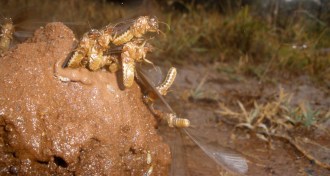 Ecosystems
EcosystemsTermite mound paradises help buffer dry land against climate change
Landscapes dotted by Africa’s great termite mounds look on the verge of turning into desert but are, in fact, more resilient.
By Susan Milius -
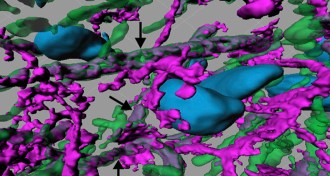 Neuroscience
NeuroscienceShots of brain cells restore learning, memory in rats
Scientists healed damage caused to rats’ brains from radiation by injecting cells that replenish the insulation on neurons.
-
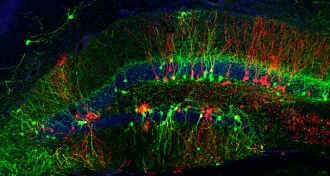 Neuroscience
NeuroscienceWith good timing, experiences can rewire old brains
New experiences can rewire old brains — but the timing has to be just right.
-
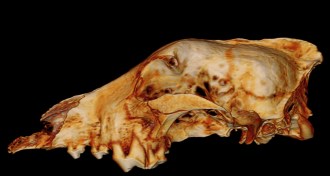 Paleontology
PaleontologyAncient wolf skulls challenge dog domestication timeline
A 3-D analysis of two ancient canine skulls from Russia and Belgium suggests the fossils were of wolves, not dogs.
-
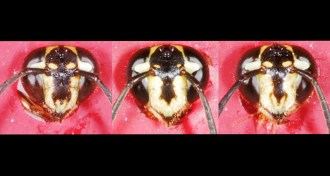 Animals
AnimalsTropical wasps memorize friendly faces
A social wasp species uses sight and smell to keep intruders from hijacking their nests.
-
 Neuroscience
NeuroscienceHow the brain sees follow-through
The follow-through on your golf swing is more than just a way to use up extra energy. It’s part of how your brain “sees” a movement.
-
 Paleontology
PaleontologyMonkeys reached Americas about 36 million years ago
Peruvian fossils suggest ancient African primates somehow crossed the Atlantic Ocean and gave rise to South American monkeys.
By Bruce Bower -
 Plants
PlantsHuge, hollow baobab trees are actually multiple fused stems
The trunk of an African baobab tree can grow to be many meters in diameter but hollow inside. The shape, researchers say, occurs when several stems fuse together.
-
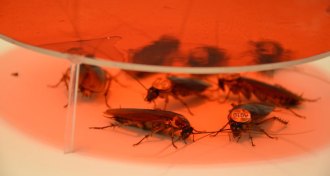 Animals
AnimalsCockroach personalities can speed or slow group decisions
The mix of temperaments in an alarmed cluster of cockroaches changes how quickly they make group decisions.
By Susan Milius -
 Humans
HumansBaby brains undergo dramatic changes in utero
Developing human brains experience more than 28,000 changes in a molecular process that governs gene activity.
-
 Plants
PlantsIsaac Newton’s theory of how water defies gravity in plants
A passage in one of Isaac Newton’s journals reveals that he may have theorized basic plant hydrodynamics long before botanists.